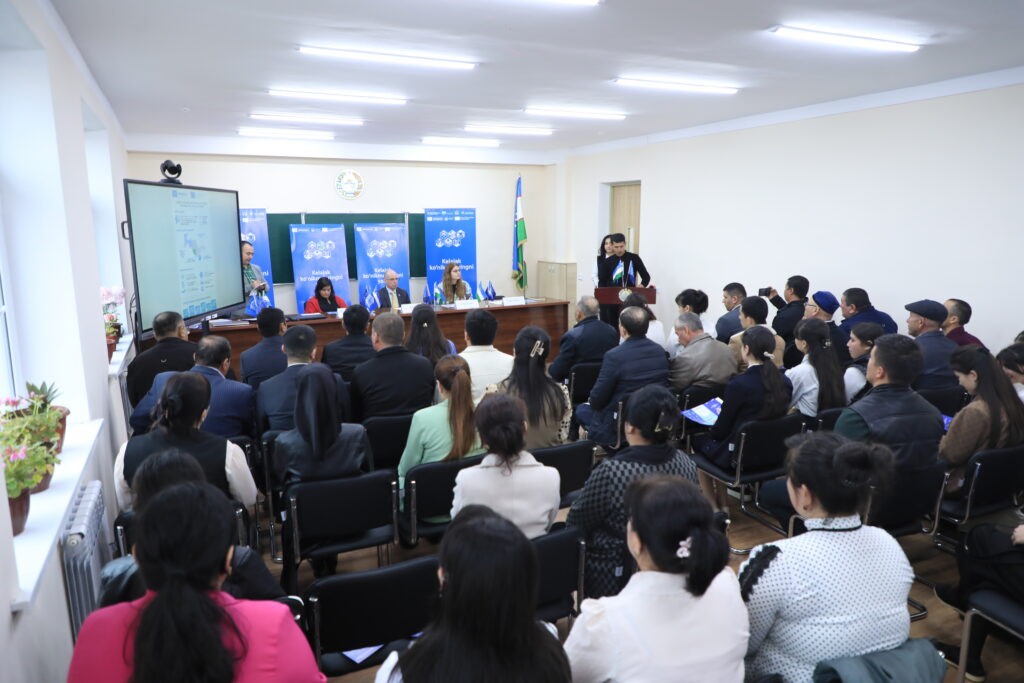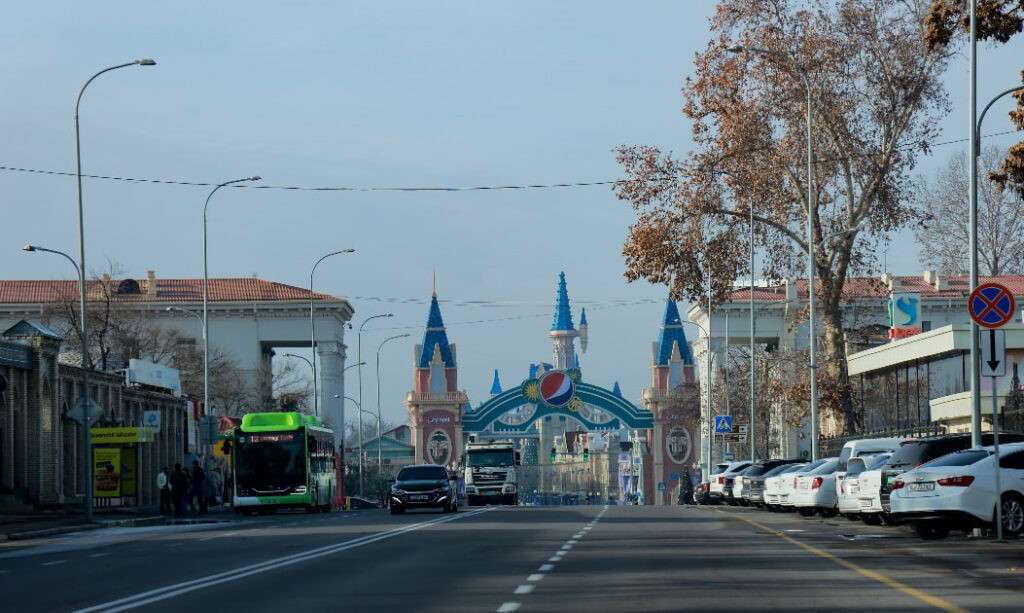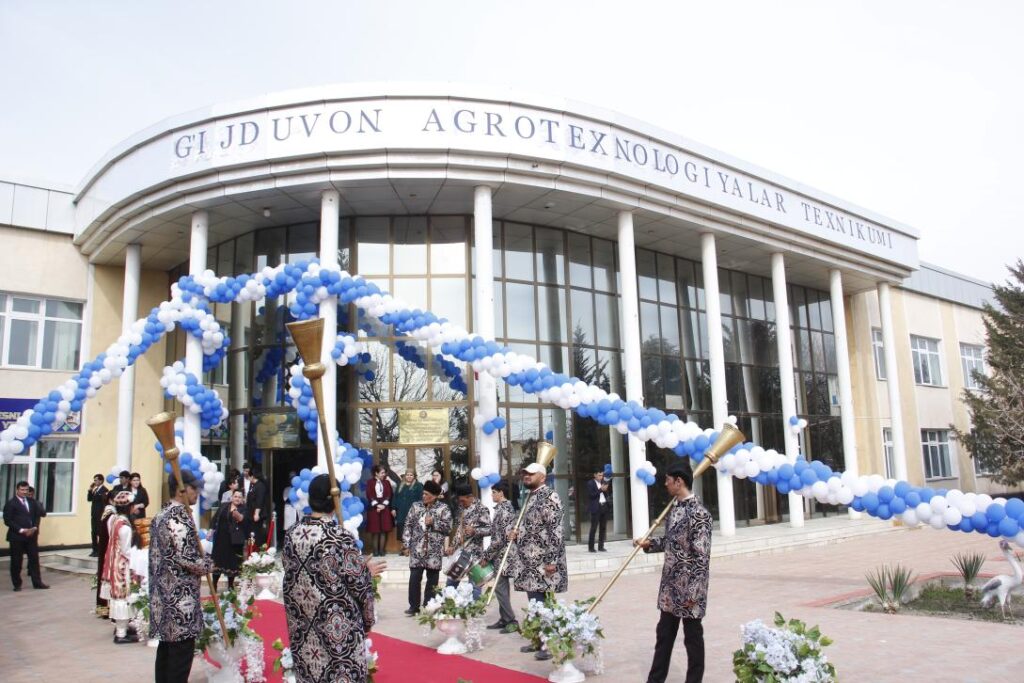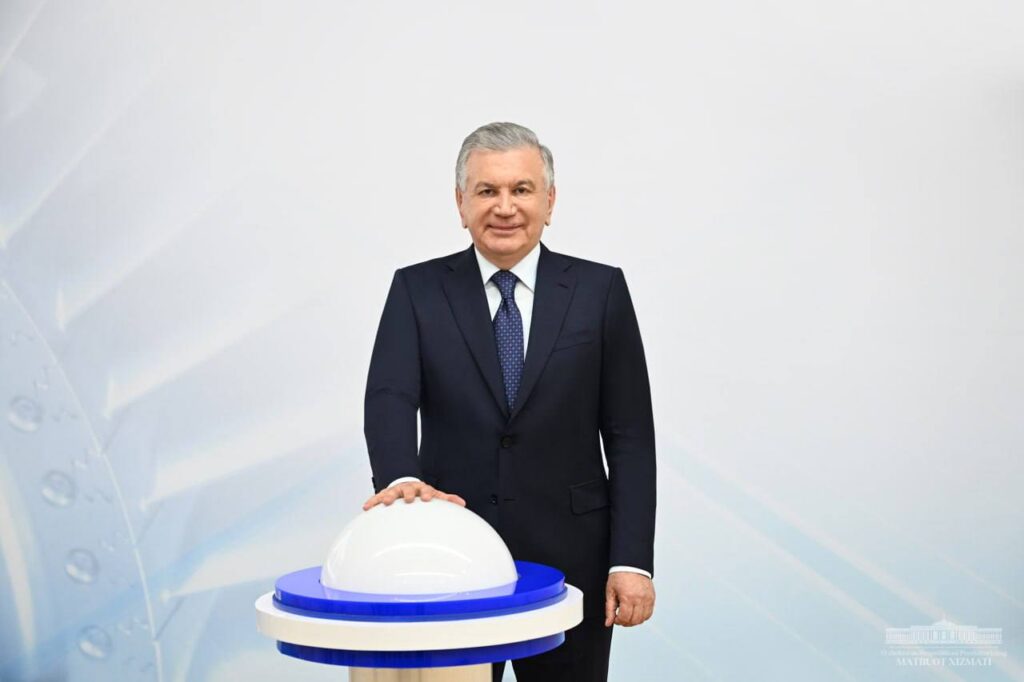Viewing results 103 - 108 of 164
The European Union (EU) Delegation in Uzbekistan has provided financial assistance to modernize the Koshkopyr College of Water Management and Land Reclamation, located in the Khorezm province. The college was renovated within the framework of a project called Development of Employment Skills in Uzbekistan's Rural Areas. As part of the renovation, workshops, classrooms and laboratories have been updated, with wiring and lighting replaced. The renovation of the college started in April 2022 with an allocated budget of more than €1 million, said Dildora Tangriberganova, deputy rector for education and training. "All workshops and training laboratories of the college were modernized and updated. We received 16 new computers and all the furniture necessary for classrooms. We expect to receive equipment for laboratories and workshops soon," Tangriberganova told the Times of Central Asia. The Koshkopir College of Water Resources and Land Reclamation, established in 1989, trains specialists in such areas as hydromelioration (hydrological engineering), vehicle maintenance, animal husbandry, automation and computer science in water management, and other specialties. Currently the college has 221 students. The administration of the educational institution noted that the updated material and technical base will prove helpful for students in mastering their future professions. The joint EU-Uzbekistan rural-development program has been in effect since July 2020. Its goal is to improve education in the agricultural and irrigation spheres. The total budget of the four-year project is €9.6 million. The water crisis remains an acute problem in Central Asian countries, including Uzbekistan, as the landlocked region has no direct access to the world's oceans. Experts believe that in 2030, the volume of freshwater shortage in Uzbekistan will reach 7 billion cubic meters - and by 2050 it will double, according to a report by Gazeta.uz. Farmers consume the most water in the country. At the same time, 40% of water is wasted due to outdated municipal infrastructure. Experts emphasize that in the future, water scarcity will lead to higher prices for food products and increase the risk of diseases spreading.
Uzbekistan’s Ministry of Ecology, Environmental Protection and Climate Change has announced that from 24 April, Tashkent will be car-free on the fourth Wednesday of every month. The main goals of the campaign are to promote a healthy lifestyle, protect the environment from harmful gases emitted by cars, reduce the volume of traffic, and attract attention to developments in public transport. On the first car-free day, heads and employees of government agencies will travel to work by public transport; a move that will reduce the number of cars passing through Tashkent by 200 thousand (22-25%), and harmful emissions by an average of 580 tons. By publicizing the example to be set by its own employees, the government aims to encourage other workers and residents to refrain from driving in the city on designated car-free days. Authorities in Tashkent are currently working on the introduction of environmentally-friendly public transport including electric buses and the launch of new metro lines, as well as the creation of bicycle paths.
On March 29th, President Shavkat Mirziyoyev chaired a government meeting on the expansion of green areas across the country. Aimed at improving the environment, Uzbekistan has initiated a mass tree planting campaign. In addition to 125 million saplings being planted this spring, work has begun on the creation of parks and planting trees in rows of ten along roads. To date, the Ministry of Defense has planted on 100 hectares, and the Ministry of Digital Technologies as well as the Ministry of Mining and Geology have each given over 65 hectares to parkland. The Ministry of Ecology, Environment and Climate Change has been tasked to establish 444 gardens and 160 public parks. To expand green areas in Tashkent, the city planning council has specified that all new construction projects allocate at least 30 percent of their territories for trees. Now in force, the campaign will ensure that green areas are integrated into projects involving the construction of 2.5 thousand multi-storey buildings in the capital. In addition, trees are to be planted on at least one hectare of land in each of the 38 New Uzbekistan residential compounds. Barren land along roads and railways, rivers and canals, and around industrial enterprises and gas stations offers further potential for a greener Uzbekistan.
According to the Statistics Agency of Uzbekistan, in January-February 2024, imports of natural gas increased 95-fold at a cost of $166.7 million. In the same period, Uzbekistan also increased its imports of oil by 5.3% costing $302.9 million and coal by 43.6% costing $42 million. Imports of electricity doubled, costing $36.4 million. In the first two months of 2024, natural gas production in Uzbekistan amounted to 7.7 billion cubic meters; a decrease of 454 million cubic meters compared to early 2023. Oil production decreased by 8.8 thousand tons to 118.5 thousand tons, and coal production decreased by 23 thousand tons to 659 thousand tons.
The Gijduvon Technical College of Agro Technologies recently opened its newly renovated facilities in Bukhara at an event attended by representatives of UNESCO, local government officials, the college's staff and students, and members of Gijduvon’s community. Integral to the 'Skills Development for Employability in Rural Areas of Uzbekistan' project, the renovations were funded by the European Union. Since its inception, Gijduvon College has been committed to providing vocational education for rural youth. Supported by the European Union, UNESCO’s extensive renovations have modernized workshops, classrooms, and laboratories through the installation of new flooring, ceilings, and enhanced lighting. In addition to revitalizing learning spaces, the project has also provided essential tools and resources, including tractors, greenhouses, refrigeration units, and contemporary furniture. By contributing to the College’s success in equipping students with the skills necessary for work in agriculture and irrigation, the improved facilities will help further sustainable development and enhanced living standards in rural Uzbekistan.
On March 25th, Uzbekistan President Shavkat Mirziyoyev pressed a symbolic button to launch the construction of new power plants in the country’s Namangan region. Today, the Namangan region has 913 megawatts of generating capacity. Over the past three years, electricity consumption in the region has increased by 24 percent and to meet the ever-growing demand, three projects have been launched with a total capacity of 1,228 megawatts at a cost of $1.1 billion. The projects comprise a cascade of hydroelectric power plants and two solar power plants. The Uzbekhydroenergo joint stock company will invest $434 million in a cascade of 6 hydroelectric power stations. With a total capacity of 228 megawatts, the plants will generate 1 billion kilowatt-hours of electricity per year, saving 310 million cubic meters of gas and providing electricity to 430 thousand households. The German company Hyper Partners GmbH will build a solar power plant with a capacity of 500 megawatts. The cost of the project is $350 million and the annual capacity, 1.095 billion kilowatt-hours. Another solar power plant will be built in cooperation with Tepelen Group Holding Limited from the United Arab Emirates. Its cost will also be $350 million and its capacity, 500 megawatts. The connection of the above power plants to the power grid is scheduled for completion by the end of this year. Combined, the projects will provide the Namangan region with an annual generating capacity of 2141 megawatts and 7.8 billion kilowatt-hours of electricity. Since this is more than enough to cover the region's need for 5.5 billion kilowatt-hours, any excess electricity will be sent to neighbouring Andijan and Fergana.






